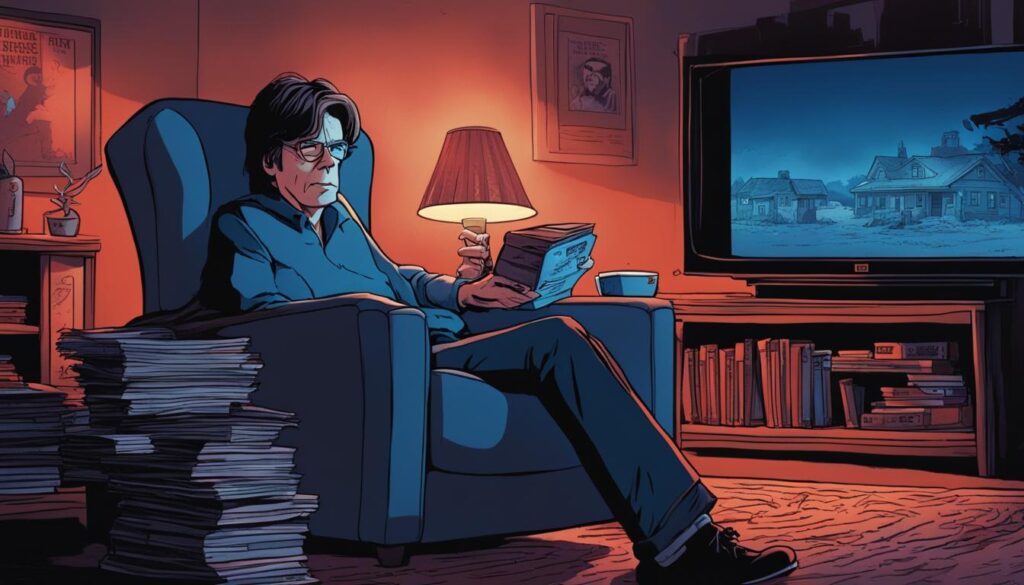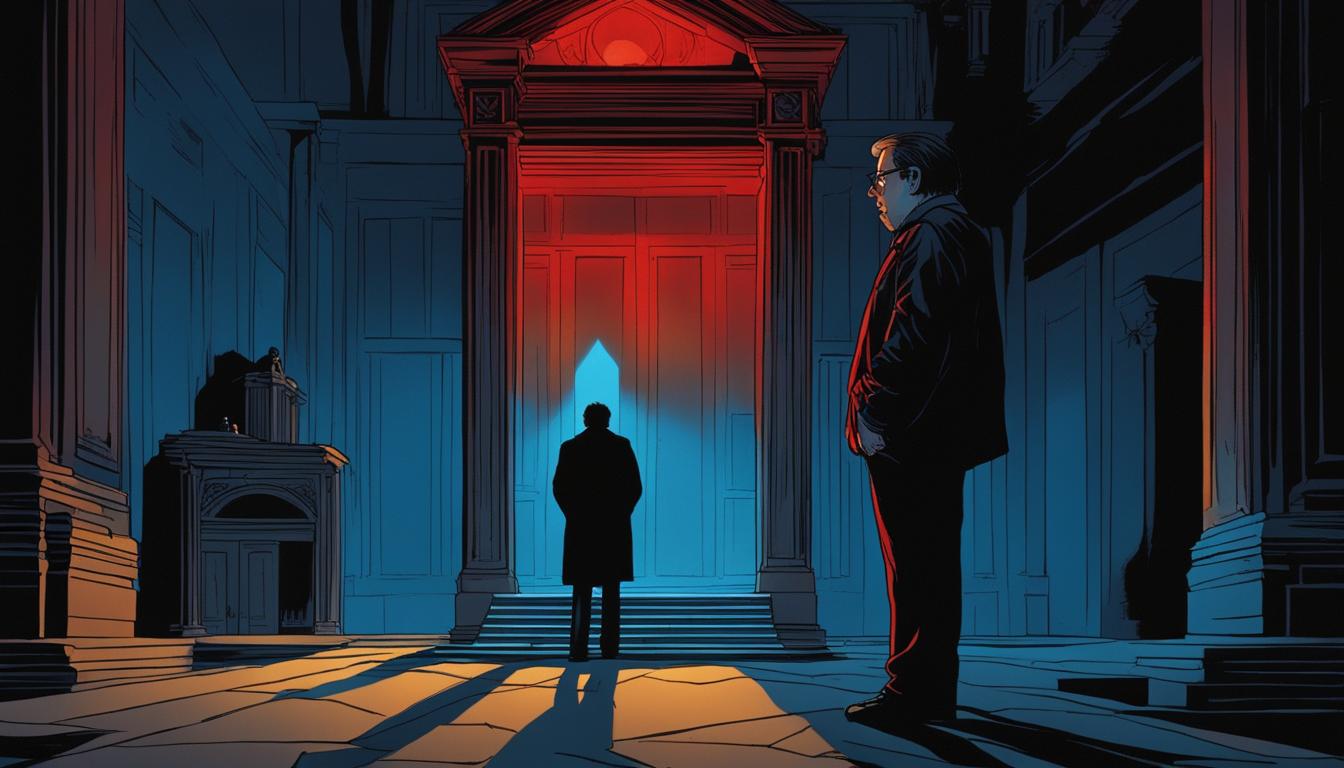Stephen King, the renowned master of horror, has been a driving force in shaping the genre for decades. With his unique storytelling techniques and compelling characters, King has become a household name for horror enthusiasts around the world. In recent years, the Netflix original series Stranger Things has taken the world by storm, mesmerizing audiences with its blend of mystery, horror, and nostalgia. It’s no surprise then that King has something to say about the show. In this article, we’ll explore Stephen King’s perspective on Stranger Things, the influence of his works on the series, and how the show’s creators have paid homage to the iconic author’s storytelling prowess.
Stephen King’s Influence on Stranger Things
Stephen King’s impact on the entertainment industry is undeniable, and the creators of Stranger Things have made no secret of their admiration for the legendary author. From the show’s 80s setting to its supernatural themes and small-town setting, there are many nods and references to King’s works peppered throughout the series.
Perhaps the most notable influence is the presence of the “Upside Down,” which shares many similarities with the alternate dimensions featured in King’s “The Mist” and “The Tommyknockers.”
But it’s not just the fantastical elements that draw from King’s work; the show’s creators have also cited his approach to characterization and storytelling as inspirations for their own work. The character of Eleven, with her telekinetic abilities and tragic backstory, has drawn comparisons to King’s iconic character, Carrie White. And in terms of storytelling techniques, the Duffer Brothers have talked about their admiration for King’s ability to balance horror and humor, a balance that is also evident in Stranger Things.
Ultimately, King’s influence on Stranger Things is apparent in both the larger thematic elements and the smaller details, creating a series that is both a loving homage to King’s work and a unique and compelling piece of entertainment in its own right.
Themes and Storytelling Techniques in Stranger Things
Both Stephen King’s works and the Stranger Things series share common themes and storytelling techniques at the core of their narratives.
One such theme is the exploration of innocence lost. Stephen King’s works often feature child protagonists who are forced to confront the dark and terrifying reality of the world around them, leading to a loss of innocence. Similarly, the young characters in Stranger Things are thrust into a perilous world of supernatural forces, discovering a reality far beyond their previously sheltered lives.
Another theme is the use of nostalgia as a storytelling device. Stephen King’s works, such as Stand By Me and IT, rely heavily on nostalgia to create a sense of time and place for the narrative. Similarly, the creators of Stranger Things have crafted a story set in the 1980s, drawing upon the cultural touchstones and iconography of the era to evoke a sense of familiarity and nostalgia in the audience.
Both Stephen King’s works and Stranger Things also employ similar storytelling techniques, such as the use of foreshadowing and building tension through small-scale conflicts before escalating to larger ones. In addition, both rely heavily on character development to drive the plot, creating multi-dimensional characters with deeper motivations and desires that propel the narrative forward.
The similarities in both theme and storytelling techniques make it clear that Stranger Things owes a great deal to Stephen King’s influence. By drawing upon similar narratives and techniques, the creators of Stranger Things have crafted a story that appeals to fans of King’s works and has become a cultural phenomenon in its own right.
Parallels Between Stephen King’s Works and Stranger Things
Stranger Things is often praised for its masterful interweaving of homages and references to the works of Stephen King. The show’s creators have acknowledged King’s influence and have openly attributed much of their inspiration to his literary contributions. From the ominous setting of the Upside Down to the heroic banter between the characters, Stranger Things echoes the classic themes and motifs of King’s universe.
Specific parallels can be drawn between the show and King’s works, such as the use of young characters with extraordinary abilities and the constant battle between good and evil. The iconic mind flayer in the show bears a striking resemblance to IT’s famed monster, Pennywise, with both portraying a shape-shifting, fear-mongering entity. Additionally, the cast of Stranger Things takes strong cues from The Goonies and Stand By Me, two King-inspired films that follow groups of children on wild adventures.
Despite the abundance of connections between Stranger Things and Stephen King’s works, the show still manages to maintain its originality and carve out its own successful place in popular culture. Fans of both King’s novels and Stranger Things can appreciate the undeniable parallels between the two, adding yet another layer of enjoyment to an already captivating series.
Stephen King’s Reaction to Stranger Things
Stephen King’s reaction to Stranger Things has been overall positive, with the acclaimed author expressing his admiration for the show and its creators. King has praised the series for its engaging storyline and memorable characters, viewing it as a tribute to his own works and the popular culture of the 1980s.
Despite the parallels between Stranger Things and King’s novels, the author has also noted some differences between the two. In particular, King has commented on the show’s emphasis on science fiction and fantasy, which he believes sets it apart from his own horror-centric writings.

Regardless, with its nod to his classic works and widespread acclaim, Stranger Things has undoubtedly garnered King’s attention and solidified its place as a beloved cultural phenomenon.
Stephen King’s Involvement with Stranger Things
Despite being an undeniable inspiration for the show’s creators, Stephen King has had limited involvement with the production of Stranger Things. While he has publicly praised the series and acknowledged its connections to his body of work, he has not been directly involved in the show’s creation.
However, there have been indications of a potential collaboration in the future. Matt and Ross Duffer, the show’s creators, have expressed their desire to work with King on future projects, and in 2019, it was announced that King had written a new ending to the novelization of Stranger Things, lending his own unique perspective to the story.
While King’s involvement with the show may be limited, his influence on the series is undeniable. The Duffer brothers have cited him as a primary source of inspiration, and fans have embraced Stranger Things as a worthy addition to the Stephen King universe.
Fan Reception and Comparison to Stephen King’s Works
Stranger Things has garnered exceptional fan reception since its debut, often garnering comparisons to Stephen King’s works. Fans have raved about the show’s nostalgic homage to the 80s, its coming-of-age themes, and its thrilling storyline. Many have noted similarities between the show and Stephen King’s famed works, such as IT and The Shining.
Stephen King himself has commented on the show’s success, tweeting in 2016 that Stranger Things was “pure fun” and praising the performance of its young actors. King also acknowledged the influence his own works had on the show, stating in an interview that Stranger Things “is like watching Steve King’s Greatest Hits”.
Despite the praise, some fans have criticized certain elements of the show, such as its reliance on tropes and cliches. Others have argued that the comparisons to Stephen King’s works are overblown, with the show relying more on a Spielbergian style of storytelling.
Regardless, one cannot deny the impact Stranger Things has had on popular culture, cementing its place as a modern classic and inspiring a wave of nostalgia-driven media.
Stephen King’s Recommendations for Stranger Things Fans
As a seasoned writer and lover of horror, Stephen King has a wealth of recommendations for fans of the Stranger Things series. One of his top picks is the show’s own inspiration, the classic film E.T. the Extra-Terrestrial, which he has praised for its authenticity and heartwarming story. Another film King recommends is the haunting thriller Don’t Look Now, which features themes of grief and the supernatural.
For readers, King suggests checking out his own works, particularly The Stand and 11/22/63, both of which feature larger-than-life characters and themes of time travel and the consequences of one’s actions. He also recommends the works of fellow horror author Clive Barker, such as The Books of Blood and The Hellbound Heart.
Overall, Stephen King’s recommendations for Stranger Things fans highlight his appreciation for both classic and contemporary horror, as well as his recognition of the show’s influence and importance within the genre.
Conclusion
Stephen King’s perspective on Stranger Things reflects the impact of his works on the show and the lasting influence the series has had on popular culture. From the Duffer Brothers’ direct influences to the common themes and storytelling techniques found in both King’s books and the show, Stranger Things is a love letter to King’s enduring legacy.
Although King has expressed some criticism about the show’s similarities to his works, he has also praised the Duffer Brothers and their ability to create a nostalgic atmosphere that captures the essence of the 1980s.
As for King’s involvement with the show, while there’s no evidence of any direct collaboration or consultation between King and the creators, the showrunners have cited him as one of their primary influences, and the show has given rise to numerous fan theories and connections to King’s broader literary universe.
Overall, for fans looking to explore more of Stephen King’s works after watching Stranger Things, he has recommended various books and movies that share similar themes or style, ensuring that his impact on popular culture will continue for generations to come.



